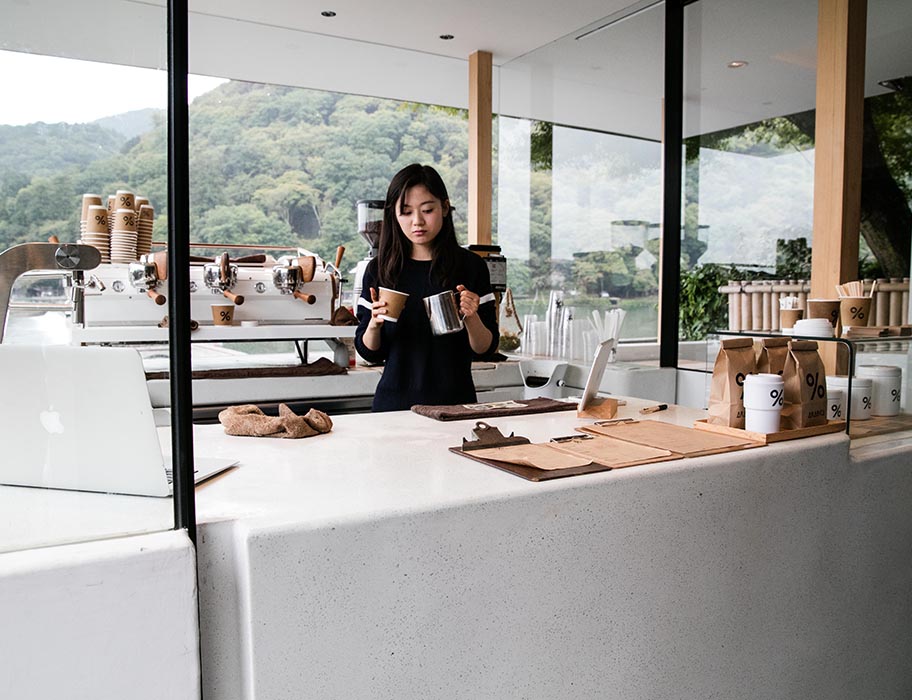|
|||

On a recent weekend R&R in Kyoto, I stumbled upon a little coffee shop in a scenic part of the city, near the famed bamboo forest. It was called % Arabica Arashiyama, and quite frankly, it had some of the best coffee I’d ever had. The coffee is roasted on the premises, so the coffee is strong, smooth, and exceedingly fresh. But beyond the menu of coffee, espressos, cappuccinos, lattes, and lemonade (presumably for children), this coffee shop offered nothing else - not even bottled water or biscotti. But then again, isn’t it like that in Japan with so many of the restaurants and eateries. But then it dawned on me why this coffee shop worked, and for that matter, why so many quaint little eateries and restaurants in Japan worked too. For an American, it might seem difficult for us to understand at first. We are so used to going to the Cheesecake Factory, expecting a book for a menu, full of choices ranging from loosely inspired Italian pastas to loosely inspired Mexican burritos to American burgers. And when you think about it, you really can’t say that the Cheesecake Factories back home are any good, although the portions are something else. In Japan, by comparison, and many other places around the world, a small specialized menu is the norm. What makes this better is that specialization tend to ensure that the offerings from these smaller eateries are fresh and consistently good. But more importantly, what a small menu tends to insure is authenticity. So a small coffee shop like % Arabica Arashiyama doesn’t try to be more than what it is. It doesn’t pretend to be something it’s not. It makes coffee, and does it the best way possible. It doesn’t try to add whipped cream a la Starbuck to confuse our senses, nor does it try to increase sales with an offering of breakfast sandwiches or pastries. It just does coffee. And in doing the same thing day after day, they perfect their coffee in an endless process of fine tuning their craft. The result is always the same, always the way it’s suppose to be, and therefore always authentic. As a consumer, you can ask for nothing else. So during this weekend getaway, I had the opportunity to dine in soba shops, udon shops, yakatori shops, and eel rice shops - all small, all good at what they do, and all completely authentic in their specialization. There is a lesson to be learned here. The more we strive to become bigger and better, aren’t we really just diluting the results? If we just try to concentrate our efforts in a couple of things, and do it right, wouldn’t it be better? Admittedly, this is contrary to the consensus of Wall Street and corporate America looking to squeeze out more earnings year after year by offering ever more choices. On first glance, you’d think that getting more is better. But I don’t know. What we normally end up with is more in quantity, but less in satisfaction, given a diminished level of thought in the process of making more. So if we’re not really benefitting from more, wouldn’t it be better to get less but specialized, with more thought, and fine tuned? I mean, look at the greatest brand story of the era - Apple. In using the same Zen-like minimalist approach, they transformed an underperforming brand into probably the most desired one in the world - or at least it was before the introduction of the Apple Watch, when Apple began to lose it’s way. So as I sip my coffee, looking across the Oi River towards Mount Arashiyama, I’ve come to appreciate a lesson I learned in Art History many years ago. Less is definitely more. |
|||
